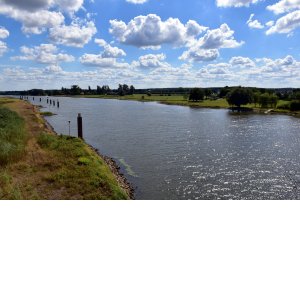
In response to the growing threat of climate change to Europe's water systems, the European Union has published an updated guidance document, River Basin Management in a Changing Climate, which calls for a shift towards nature-based solutions (NbS) to improve resilience. The publication, which is part of the EU's strategy to implement the Water Framework Directive (WFD) and the Floods Directive (FRMD), emphasises the need for integrated water management approaches that balance ecological protection and climate adaptation.
NbS, which include wetland restoration, reforestation and urban water infiltration projects, offer multiple benefits by improving water retention, promoting biodiversity and mitigating climate change through carbon sequestration. These solutions address both flood and drought risks, improve water quality and create natural reservoirs that can be used in times of drought. It is also emphasised that maintaining or restoring natural ecosystems often provides better resilience to climate impacts than structural measures.
The economic viability of NbS is also highlighted, with studies showing a favourable cost-benefit ratio. However, there are also barriers to widespread adoption, including limited knowledge of their effectiveness in extreme weather conditions, lack of adjacent land for implementation and insufficient funding. The EU calls on policy-makers to step up efforts on NbS, while integrating them into existing infrastructure and management systems to ensure the adaptability of water systems to future climate risks.
As part of broader EU policies such as the Green Deal and the European Climate Law, this guide calls for a sustained commitment by Member States to promote nature-based adaptation measures. For stakeholders, policy makers and water managers, this document provides an important roadmap for protecting Europe's water resources through innovative, sustainable solutions that enhance both environmental protection and societal resilience. More details are available in the full report.
